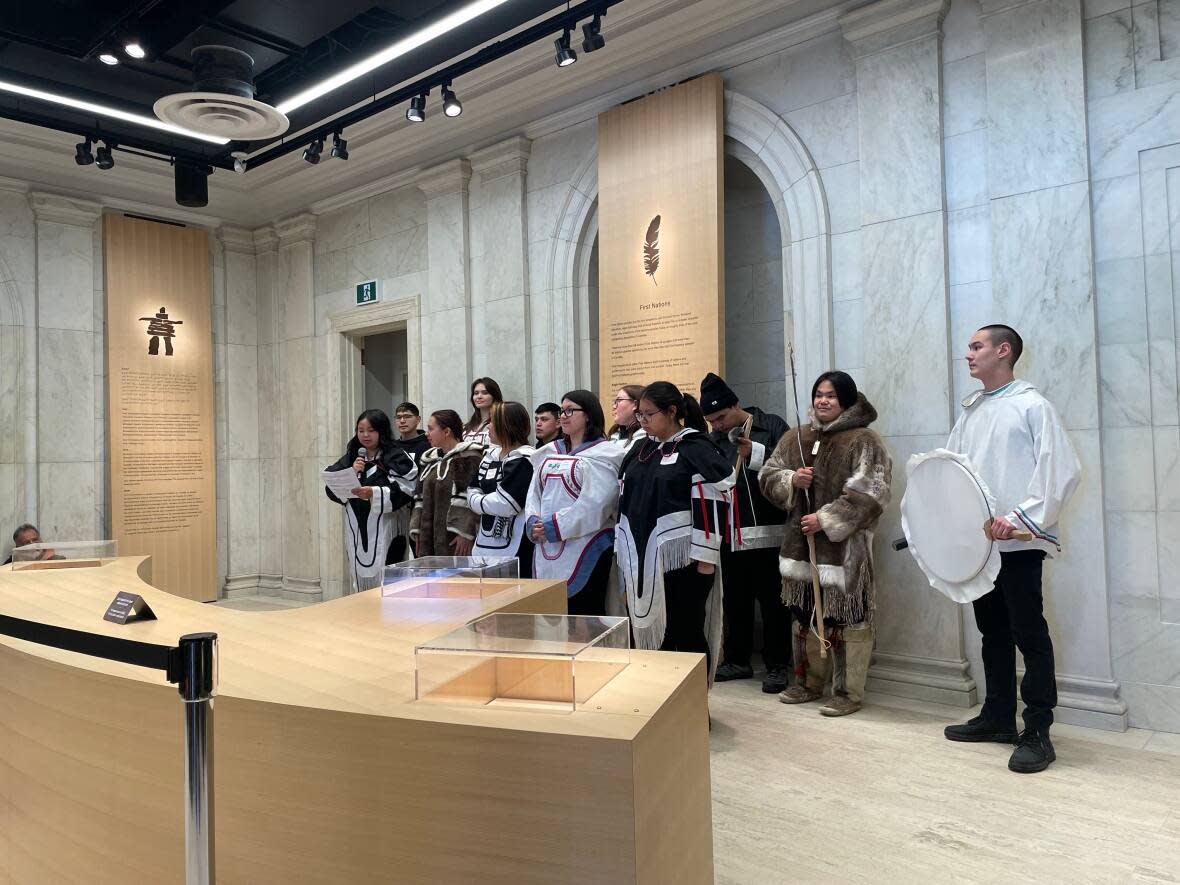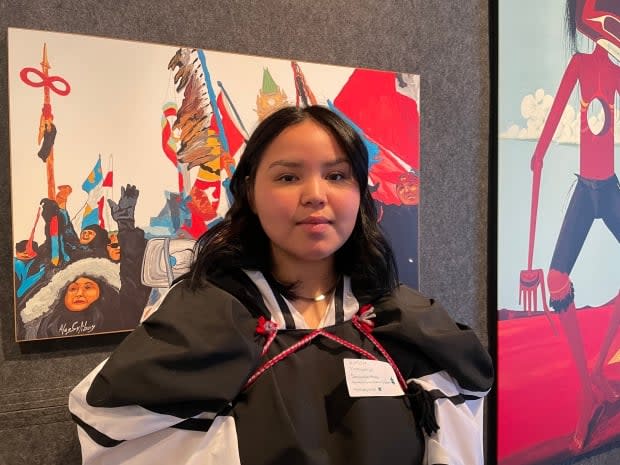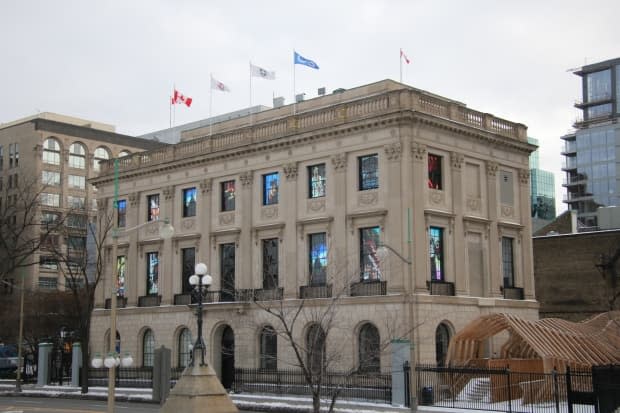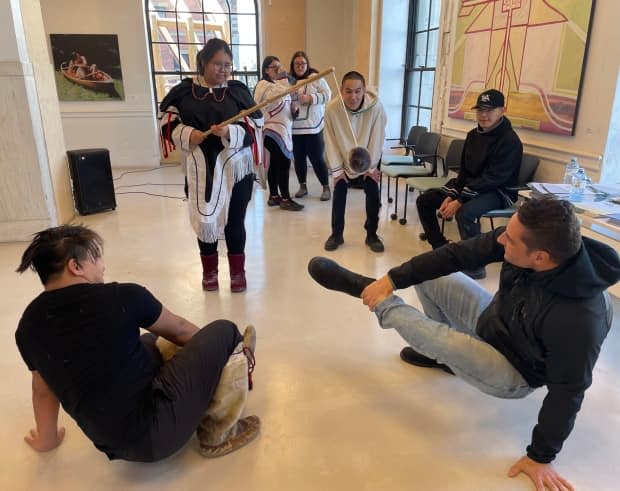Inuit cultural showcase offers rare glimpse inside 100 Wellington

In front of dozens of people, Samantha Putumiraqtuq and other Inuit youth filled the marble foyer of 100 Wellington St. Saturday with the sounds of singing and beating drums.
"Practices like traditional tattoos, singing, [were] taken away from us, from our previous generations,' said Putumiraqtuq, one of the performers from Nunavut Sivuniksavut (NS), a local post-secondary education program specifically for Inuit youth.
"Now we're just claiming it back."
As Putumiraqtuq wrote onlookers' names on labels in Inuktitut, she said she was excited to share her culture with people who came out to the Winterlude showcase.
But that's not all she was excited about: it was also her first chance to show off the former U.S Embassy building across from Parliament Hill, also known as the Indigenous Peoples Building.

'A significant space for Canada'
The one-day-only Winterlude event organized by Inuit Tapiriit Kanatami (ITK) gave Ottawans a rare opportunity to look inside the long-closed former embassy building.
Katherine Irngaut, manager of communications for the national group representing Inuit across Canada, said she was thrilled to finally share the space, five years after Prime Minister Justin Trudeau declared it would be dedicated to Inuit, First Nations and Métis peoples.
"To be able to use this space that is designed for reconciliation, to be able to celebrate our culture has been wonderful," she said.
Irngaut called 100 Wellington, which until recently had sat empty for more than two decades, a "significant space for Canada."
The building is meant for the Metis National Council, the Inuit Tapirit Kanatami and the Assembly of First Nations to use it as an embassy and cultural centre.
But the journey to accessing it hasn't been easy.

It was supposed to open nearly three years ago, but those plans were derailed when members of the Algonquin Anishinabeg Nation demonstrated outside for nearly two weeks, demanding to become a fourth partner in the project as the property sits on Algonquin land.
Eventually, the federal government reached a deal with the Algonquin Anishinabeg Nation for a separate space to be dedicated to them, just behind it.
Because of that dispute, Inuit, First Nations and Métis leaders couldn't get access to 100 Wellington until last fall. It's also still unclear when the building will be open to the public again, as the area's set to undergo construction this fall.
But on Saturday it was abuzz with visitors getting their first glimpse at the storied building, all while trying their hand at traditional Inuit activities.

'Proud to be Inuk'
Basil Macatasnuy, who is from Nunavut and was part of the performing group, said he felt nostalgic as he demonstrated his favourite games for onlookers: the "knuckle hop" and the "high kick."
Despite getting hurt while in action, Macatasnuy said he was happy to teach visitors his skills.
"I grew up playing these games ... it reminds me of being home with my family," he said. "I'm proud to be Inuk and show off that I'm Inuk," he said.
The event also featured screenings of a short film on Inuit history and cultural artifacts, something Ottawa resident Marina Radeva was eye-opening.
Raneva said she learned a great deal Saturday about the history of the Inuit and the lasting effects of colonization on them.
The fact 100 Wellington St. was dedicated for Indigenous peoples serves as a reminder of the fact "reconciliation is not only paper, it's not only words, but it's something real," she said.
"For us ... Canada is the glorious land where everything is perfect," Raneva said. "But it's not."


